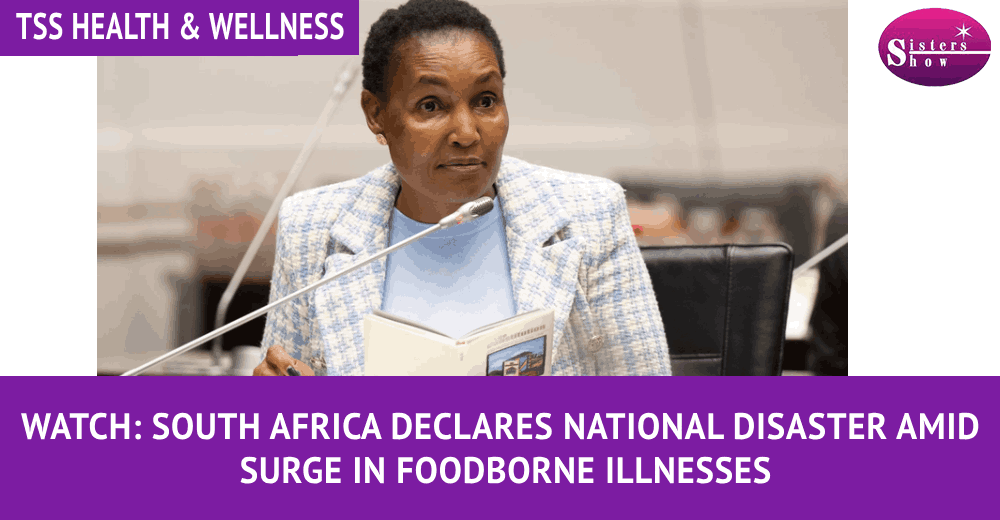
WATCH: South Africa Declares National Disaster Amid Surge in Foodborne Illnesses
A National Crisis Unfolds
South Africa is facing a surge in foodborne illnesses, leading the National Disaster Management Centre to declare a national disaster under Section 23 of the Disaster Management Act 57 of 2002. Since September 2024, nearly 900 cases and 22 fatalities, including children, have been reported. This crisis has exposed significant gaps in food safety, municipal enforcement, and public awareness.
Minister of Justice and Constitutional Development, Thembi Simelane, outlined the government’s response during a press briefing in Pretoria. Efforts are now focused on enforcing municipal by-laws, strengthening health regulations, and addressing resource shortages to protect vulnerable populations and prevent future outbreaks.
What Are Foodborne Illnesses?
Foodborne illnesses occur when contaminated food or beverages are consumed. Common causes include bacteria, viruses, parasites, and harmful chemicals. Symptoms can range from mild discomfort to life-threatening complications, particularly in children, the elderly, and those with weakened immune systems.
In South Africa, the outbreak has been attributed to factors such as:
- Poor food hygiene practices.
- Insufficient waste management.
- Rodent infestations in vulnerable communities.
The crisis highlights the urgent need for better food safety regulations and public health infrastructure.
Key Government Interventions
The South African government has announced a multi-faceted plan to address the root causes of foodborne illnesses:
1. Standardizing Municipal By-Laws
The implementation of municipal by-laws aims to improve food safety, particularly in rural and township economies:
- Proper waste disposal: Businesses must adhere to strict waste management protocols to reduce food contamination risks.
- Recycling practices: Encouraging eco-friendly waste management methods.
- Rat control measures: Addressing rodent infestations through safer alternatives to banned chemicals and pesticides.
2. Strengthening Health Regulations
The Department of Health is prioritizing real-time tracking and prevention of foodborne illnesses by:
- Amending the Notifiable Medical Conditions Regulations to include child fatalities under 12 years old.
- Establishing a Ministerial Advisory Committee to:
- Identify high-risk groups.
- Develop medium- to long-term prevention strategies.
- Propose policy reforms to improve food safety standards.
3. Addressing Resource Shortages
South Africa faces a critical shortage of environmental health inspectors. To address this, the government is working to ensure all districts and metropolitan municipalities have adequate personnel for regular inspections and swift regulatory enforcement.
Why Food Safety Matters
Foodborne illnesses are more than a public health concern; they are a social and economic crisis that deepens inequalities. Communities with limited access to clean water, proper sanitation, and food storage are disproportionately affected.
Children Are the Most Vulnerable
According to the South African Medical Research Council (SAMRC):
- Malnutrition and food insecurity in low-income areas amplify the impact of foodborne illnesses.
- These conditions lead to higher mortality rates, especially among children.
How Individuals Can Help Prevent Foodborne Illnesses
While government intervention is essential, individuals can also take steps to protect themselves and their families:
1. Practice Proper Food Hygiene
- Wash hands, utensils, and surfaces before preparing food.
- Cook meat and poultry to safe internal temperatures.
- Use separate cutting boards for raw meat and fresh produce.
2. Store Food Safely
- Refrigerate perishable items promptly.
- Discard expired or spoiled food.
- Inspect food packaging for damage or contamination.
3. Report Unsafe Practices
- Notify local authorities if unhygienic food preparation or storage practices are observed in your community.
Moving Forward
Declaring this crisis a national disaster is a critical step toward mobilizing resources, improving food safety regulations, and raising public awareness. Through coordinated efforts between the government and citizens, South Africa can tackle foodborne illnesses and build a healthier future for all.
Don’t miss out on the latest updates. Stay updated with Health & Wellness with The Sisters Show. Get all the details and never miss a beat!
Read More:- MERCY MOGASE SHINES LIGHT ON HER VEGAN JOURNEY AND PLANT-BASED LIVING




